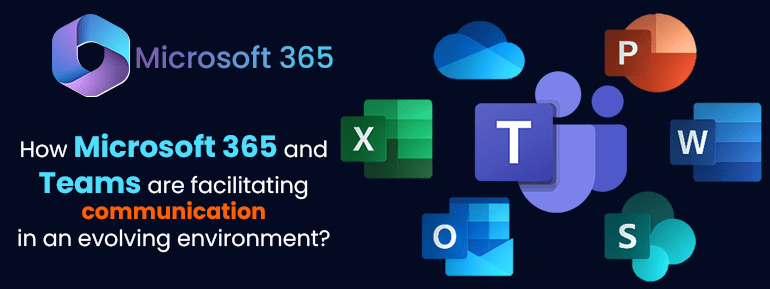Digital transformation involves the integration of digital technologies into all aspects of a business, including strategy, operations, and customer engagement. The state of digital transformation varies depending on the industry and organisation, but in general, many companies are still in the early stages of implementing digital transformation initiatives. There is a growing recognition that digital transformation is necessary for organisations to stay competitive. Still, there are also challenges, such as a lack of skills and resources. Here at TOS, we manage challenges for you and make sure they are settled quickly.
You can’t say enough about how common digital is today. In fact, it is safe to assume that digital transformation (DX) is a top priority for business and technology leaders today.
This growth has been going on for a while now, but it really started to become visible during the epidemic. To further understand this phenomenon, we take stock of the present state of digital transformation. A diverse group of individuals contributed to rich and varied findings. First, the most surprising result: Digital Transformation is more widespread than ever before, attracting responses from all one hundred people surveyed. Knowing where digital transformation is now helping us understand this phenomenon.
Investment in DX is relatively new, despite having garnered a lot of attention over the previous decade. While all businesses are now involved with DX in some capacity, the vast majority (77%) have just begun their DX journey within the previous two years. The percentage of those who claim to be done with DX work is just 27%. And the majority are in their early stages, with one-quarter (24%) still in the deliberation phase and half (49%) in the transformation process.
The survey’s most important results
The following are the top three drivers of DX that organisations cite:
- Increased demand from consumers
- Maintaining productivity in the face of increased business activity
- Increased competition
Top obstacles businesses encounter to implementing digital transformation.
Some common challenges that enterprises face when tackling digital transformation include the following:
- Lack of clear strategy: Many organisations struggle to define a clear and comprehensive digital transformation strategy, making it difficult to prioritise initiatives and measure progress.
- Resistance to change: Digital transformation often requires significant changes to how organisations operate, which can be met with resistance from employees, customers, and other stakeholders.
- Limited technology capabilities: Many organisations lack the technology infrastructure and skills to support digital transformation initiatives.
- Data silos: Many organisations struggle to access, integrate, and make sense of the data they need to support digital transformation initiatives.
- Security concerns: Digital transformation often involves using new technologies, such as cloud computing and the Internet of Things, which can introduce new security risks.
- Integration of legacy systems: Many organisations struggle to integrate legacy systems and technologies with new digital platforms and tools, which can slow down the pace of digital transformation.
- Budget constraints: Digital transformation can be expensive and require significant investment, challenging organisations with limited budgets.
What aspects of the company do DX initiatives for businesses focus on?
68% of companies are revamping their front-end processes, 61% of their back-end procedures, and 38% of their operations (end-to-end). The findings were clear, however, when we examined business processes, business information, and customer engagement: businesses are concentrating on modernising their most complicated operations rather than their less involved ones.
For instance, whereas almost all respondents (93%) believe that altering complicated business processes is crucial, barely half (50%) place the same importance on transforming basic business processes. It’s the same with intricate customer interactions (92% vs. 6%) and complex business data (91% vs. 57%).
The most effective DX strategies used by businesses include
Insights from the elite:
- End-to-end digital transformation is more than SEVEN times as likely (80% vs. 11%).
- Almost FIVE times more likely to be interested in low code (63% vs. 13%)
- 76% are 2.4 times as likely as 32% to say DX is very important.
Guidance for Digitally Transforming Involved Business Solutions
Here are three insights we think organisations should focus on to get the most out of their digital transformation:
Make it easy for your consumers to conduct business with you to provide a seamless experience.
To get simple out of your complicated business processes, you need to rethink them. It doesn’t matter to your clients how complicated your business is or how many departments and systems you have. The most successful companies connect all these moving parts by automating the process from start to finish. This works by giving their customers an easy, almost Amazon-like experience across all of their products, channels, and commutes.
Deliver your consumers a great experience, ensuring excellent operations.
Achieving operational excellence relies heavily on providing a first-rate experience for all employees. They need to do their jobs well and make sound choices. Set your efforts towards fully automating the application. That means giving your workers and supervisors seamless access to all the information.
Go for a DX leader that facilitates you to innovate faster.
Market leaders distinguish, learn, and innovate quicker. A business strategy, market dynamics, and operational insights can help you develop quicker and be future-ready. Your solutions should manage complexity and agility, adapt to your unique differentiators and strategy, allow you to customise your secret sauce, and make learning and changing easy.
At TECHOM Systems, our goal is to develop solutions for a Modern Workplace, and we do best by running transformation programs. We want to help you make the most of your digital skills and make you more successful by giving you more ways to use technology.
In order to address the issues our clients face in Digital transformation, we have relied on a cloud-first strategy from the get-go. Through dozens of cloud migrations, we’ve gained invaluable expertise. We are present, and you will also be if you use our aid.
With business process automation, you may streamline your company’s operations by computerising manual tasks, integrating your information systems, and improving the quality of service you provide to clients.
Schedule a call with one of our experts who will consult you better. |















